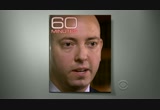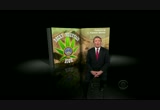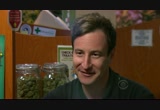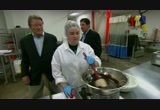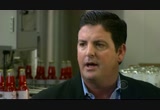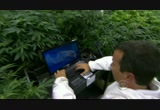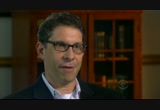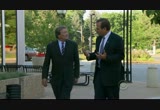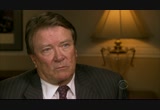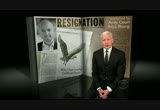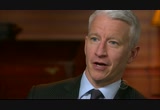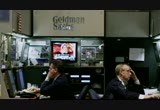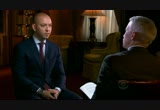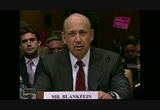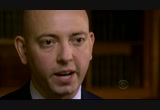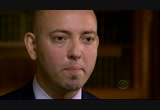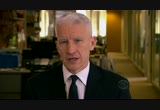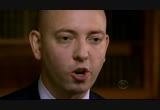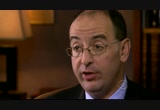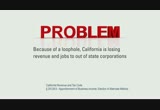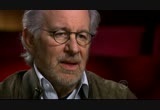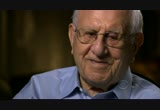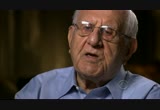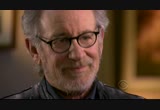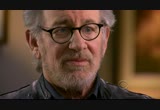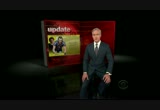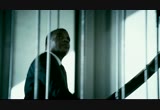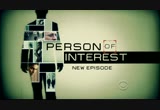tv 60 Minutes CBS October 21, 2012 7:00pm-8:00pm PDT
7:00 pm
captioning funded by cbs and ford-- built for the road ahead. >> kroft: if you want to know what legalized marijuana might look like, the place to go is colorado, which has the most developed medical marijuana industry in the country. >> when patients arrive, this is where they'll have to show their patient registry card and their driver's license to gain access to the actual marijuana center itself. >> kroft: you can smell it. ( laughs ) it's not a joking matter. 17 states have legalized marijuana for medical use, and in some cases, as a way to raise money for their cash-strapped state budgets. all of those people are violating federal law. >> exactly. >> i literally wanted to hit the board of directors over the head and say, "listen, i was proud of
7:01 pm
goldman sachs. i worked here for a long time." >> cooper: when people leave goldman sachs, they tend to leave quietly. they rarely talk about the inner workings of the firm, let alone criticize them. but seven months ago, a young goldman sachs vice president did just that, resigning in an article on the op-ed page of "the new york times." so an op-ed resignation, you hoped it would be a wake-up call. >> my view is the only way you force people to change a system is by saying something publicly. >> i've always wanted to tell a story about lincoln. >> stahl: steven spielberg's new film "lincoln" focuses on our 16th president's almost impossible task of passing the 13th amendment abolishing slavery. the director researched the project for 12 years and cast oscar-winning actor daniel day lewis as abraham lincoln. >> blood's been spilt to afford us this moment. now, now, now! >> i think the film is very
7:02 pm
relevant for today. it's about leadership. >> stahl: leadership. >> and about telling the truth. >> i'm steve kroft. >> i'm leslie stahl. >> i'm bob simon. >> i'm lara logan. >> i'm anderson cooper. >> i'm scott pelley. those stories tonight on "60 minutes." "ever ask somebody to lend you a foot?" "who thinks about stuff like that?" "vince mahe grew up on two continents... and noticed that wherever you go, people have their hands full, but their feet free." "the result? a liftgate you operate with your foot." "code name?" "open sesame" "the all new twenty thirteen ford escape.
7:03 pm
it's what happens when you go further." two. three. my credit card rewards are easy to remember. with the bankamericard cash rewards credit card, i earn 1% cash back everywhere, every time. [ both ] 2% back on groceries. [ all ] 3% on gas! no hoops to jump through. i earn more cash back on the things i buy most. [ woman in pet store ] it's as easy as... [ all ] one! -two. -[ all ] three! [ male announcer ] the bankamericard cash rewards credit card. apply online or at a bank of america near you. charlotte liked the stars better than probably anything, even the cool, sophisticated billy pierce. but one day, charlotte's stars vanished. what feats of incredible power could bring them back to her? suddenly, a gift appeared -- the 30 billion stars she so missed. happy holidays, charlotte. i'm billy pierce, and i gave charlotte back the stars. ultrabook, inspired by intel.
7:04 pm
with intel core processors. ♪ with the fidelity stock screener, you can try strategies from independent experts and see what criteria they use. such as a 5% yield on dividend-paying stocks. then you can customize the strategies and narrow down to exactly those stocks you want to follow. i'm mark allen of fidelity investments. the expert strategies feature is one more innovative reason serious investors are choosing fidelity.
7:05 pm
now get 200 free trades when you open an account. >> kroft: when people go to the polls two weeks from now, they won't just be voting for candidates. in some states, they'll be passing judgment on social issues. in oregon, washington, and the rocky mountain state of colorado, it's the legalization of marijuana. part of this has to do with cash-starved governments looking for new things to tax for more revenue. but much of it has to do with the growing acceptance, or at least tolerance, for a drug that was once considered the devil's weed and a flash point for cultural and generational warfare. 17 states have now legalized its medical use for the treatment of things like glaucoma, the effects of chemotherapy, and chronic pain, defying federal laws that still consider marijuana more dangerous than cocaine and methamphetamine.
7:06 pm
if you want to know what legalized marijuana might look like, the place to go is colorado, which has the most developed medical marijuana industry in the country. in denver, if you want to find a medical marijuana dispensary, just look for the green cross. you won't have to go far. there are 204 of them in the mile high city; that's roughly three times the number of starbucks and mcdonald's combined. they come in all sizes and shapes. there is the health food store motif, and '70s-style head shops. there are storefronts pitching low-cost weed, and boutiques offering gourmet ganja. no stems and seeds here, just walnut-sized buds freshly harvested in the cultivation room out back. >> matt cook: when patients arrive, this is where they'll have to show their patient registry card and their driver's license to gain access to the actual marijuana center itself.
7:07 pm
>> kroft: you can smell it. this is all private enterprise, licensed, regulated and taxed by the state. it was enshrined in the colorado constitution after voters approved an amendment allowing the sale the marijuana to people who can demonstrate that they may benefit from its avowed medicinal properties. matt cook, a former narcotics officer, wrote the law and served as the state's first director of enforcement. >> cook: if you'll note, video security cameras in the system... in the ceiling. >> kroft: any reason for that? >> cook: there is. we created a very transparent regulatory scheme and wanted to ensure that what they said they were doing, they were actually doing. >> kroft: no state has gone to the lengths to manage medical marijuana that colorado has. every licensed dispensary must grow at least 70% of its own product-- indoors, so harvesting and sales can be closely monitored. this crop is worth about a quarter of million dollars. >> cook: we track everything from seed to sale.
7:08 pm
and they have to account for 100% of it. we've got a gentleman here that has a live, if you will, software program that does all of the tracking for this commodity. >> kroft: each plant has a bar code and is registered to a specific patient. most dispensaries will cultivate a couple of dozen different strains-- some of them proprietary, like ales at a microbrewery-- engineered to have particular characteristics, as our "budtender," carrie, explained. >> carrie: this is called jack frost, but it's a triple-a-- alert, awake, and aware. if you needed to medicate in the a.m. before going to work, no one would ever be able to detect that you took any medicine, just as you would any other medicines that you take. so no physical lethargy, is my point. >> kroft: we should point out that those properties are anecdotal, and not based on studies by either the f.d.a. or the d.e.a., a subject we will get to shortly. there is also no correlation between the more popular brand names and the ailments they alleviate.
7:09 pm
dopium is a medication available at denver relief, owned by ean seeb. it's gotten high marks from critics-- yes, there are medical marijuana critics in colorado, even competitions. you won the colorado medical marijuana harvest cup couple of years ago? >> ean seeb: we did in 2009. and our biodiesel won five out of the six categories and first place. so we won the overall award. it was a sweeping victory, if you will. and then we put... >> kroft: "biodiesel"? >> seeb: yeah. >> kroft: that's the name of it? >> seeb: yes, it is. and it's... it's become... >> kroft: doesn't sound like medicine. >> seeb: there's a lot of strains out there that don't sound like medicine, because this didn't used to be legal. and those strain names have not changed, you know, strains back in the '70s. you know, there was "afghani" that we still have, "ak-47" that came from the hindu kush region of afghanistan originally. >> kroft: but it's not all brand loyalty and nostalgia. there are lots of new things on the dispensary shelf, especially for non-smokers. they're called edibles, the marriage of botanical science
7:10 pm
and the culinary arts-- marijuana infused cookies, candy, chocolate truffles, even olive oil. and for patients watching their waistline, there are marijuana pills that come in different strengths, just like tylenol and advil. >> carrie: you simply take it with a glass of water and it puts you where you need to be. >> kroft: the people who have invested money in all of this are known locally as "ganja- preneurs." colorado has had a history of gold rushes and silver rushes, and some people have dubbed this the "green rush"-- not just for the color of medical marijuana, but for the money that might eventually be made here if you are among the first to stake a claim. kristi kelly was doing marketing in washington when she decided to invest in a medical marijuana dispensary. >> kristi kelly: there's not a lot of opportunities in any one lifetime where you can be a part of something from such an early stage. and so, ultimately, my partners begged me to come out. and my husband and i packed up
7:11 pm
our bags and shut down our life in d.c. and moved out here. >> tripp keber: the company's evolution has been fairly dynamic. >> kroft: tripp keber is c.e.o. of dixie elixirs, the leading manufacturer of cannabis-laced edibles. it supplies most of the state's 537 dispensaries from this factory, which he calls state- of-the-art for the industry, which means small scale. >> keber: so here we have lexi, who is one of our production specialists. she's preparing our medicated chocolate rolls, which are certainly one of our most popular edibles products. >> kroft: smells really good. it looks good. >> thank you. ( laughter ) >> kroft: dixie elixir's product line includes ice creams and medicated beverages that come in ten different flavors. >> keber: we have a 75- milligram, 12-ounce sparkling red currant, would be the equivalent of four or five doses of medicine for a patient >> kroft: what would happen to me if i drank one of these?
7:12 pm
>> keber: you would have a very long but mellow afternoon. ( laughter ) >> kroft: keber and his partners have poured a million dollars into this business, and have also pioneered edible products and capsules they say contain all of the medicinal benefits of marijuana, but without the high. what's your business plan? >> keber: so, our plan, you know, and i'm... >> kroft: ...long-term and short-term. >> keber: sure, the long-term plan for this business, for dixie elixirs and edibles, as i've never been really shy to share, is ultimately to sell it. i truly believe that whether it's big alcohol, big tobacco or big pharma, a company like one of those is going to look very, very closely at medical cannabis. it's about a $2 billion market in 2012, growing to just under $9 billion in 2016. so you're seeing hockey-stick growth. and i think companies like dixie are well positioned to be acquired as the industry develops. >> kroft: it's a risky proposition. the industry requires a big capital investment and the medical marijuana marketplace is already saturated. but matt cook, who wrote the
7:13 pm
rule book for all this and is now a consultant to the medical marijuana industry, says it's helped pull denver out of the recession, occupying once vacant retail and industrial space, providing thousands of jobs and new revenue for the state of colorado. what's the economic impact been? >> cook: it's huge. there's over a million square feet of leased space in the denver area. look at all the electrical contractors, the hvac contractors, a number of ancillary businesses. it's huge. tax revenues exceeded... i believe the last number i heard was in excess of $20 million. >> kroft: but in spite of all the euphoria, there is a cloud hanging over the cannabis industry in colorado, and it's not marijuana smoke. it's the federal controlled substances act, which still lists marijuana as a schedule one drug, every bit as dangerous as heroin, with no medical benefit. and the justice department is not happy with the wide-scale commercialization of colorado cannabis.
7:14 pm
sam kamin is a law professor at the university of denver, and one of the reigning experts on the subject. in colorado, you can grow it if you're licensed, and you can sell it if you're licensed to people who have a card to buy it. >> sam kamin: yes, but... >> kroft: and all of those people are violating federal law. >> kamin: exactly. and that's the really strange thing is that we have this, you know, sort of hundreds of dispensaries servicing as many as 100,000 people, and every transaction that occurs is a federal crime, and every... all the manufacturing of the product, from the growing of it to the making of the products and everything else. all of those are serious federal crimes. >> kroft: even though the state of colorado has passed a constitutional amendment allowing it... >> kamin: exactly. >> kroft: ...sanctioning it. >> kamin: exactly, right? the federal government sees it as a serious crime. they say, "we know that california and 16 other states, the district of columbia, we know you guys think it's medicine. it's not. we hear that you want to legalize it. you can't. we can't make you undo your statutes, but we can sure come
7:15 pm
in and prosecute your citizens that are violating federal law." >> kroft: but they haven't. >> kamin: but they haven't. >> kroft: and there's a reason for that-- some might call it the triumph of the marketplace. the federal government doesn't have enough manpower to shut down the medical marijuana business in colorado or prosecute all the purveyors and patients. and the voters don't want it. boulder county district attorney stan garnett says it's virtually impossible to impanel a jury on a marijuana case here, let alone get a conviction. >> stan garnett: what we deal with is what prosecutors call jury nullification, where juries say, "i know what the law is, but i'm not going to follow it." this community has made it very clear that criminal enforcement of marijuana is not something they want me to spend any time on. >> kroft: it is really an issue here? >> garnett: it's really not an issue. >> kroft: and that is, more or less, the position of justice department in washington. deputy attorney general james cole has told u.s. attorneys not to waste resources prosecuting patients or caregivers that are
7:16 pm
in clear compliance with state medical marijuana laws. >> james cole: our focus is really on keeping it away from children. our focus is keeping it out of the hands of organized crime. our focus is making sure that people aren't, through marijuana dispensaries, using it as a pretext to do large-scale interstate drug dealing. these are the areas where we're really trying to focus. >> kroft: so the message is, if you're licensed in the state of colorado and you follow the law, then you should be okay. >> cole: each case is going to rise and fall on its own unique facts. any of that is still in violation of the controlled substances act of the federal law. we're not interested in bothering people who are sick and are using it on the recommendation of a doctor. we are concerned with people who are using it as a pretext to become large-scale drug dealers. >> kroft: so it sounds like the federal government is tolerating it. >> kamin: it is tolerating it.
7:17 pm
and at the same time is, below the surface, trying to make it very difficult for these folks. it's doing it through banking regulations. if... if you talk to dispensary owners, one of the things that they will lament is, no one will do business with us. >> kroft: the justice department has let it be known if financial institutions do business with medical marijuana centers, they could be at risk for civil or criminal prosecution under the controlled substances act or federal money laundering statutes. it's made it difficult, if not impossible, for dispensaries to get loans, open company bank accounts, or process patients' credit cards. >> kamin: it can't stay like this. either we have to have settled expectations that this is a federal crime, the federal government's not going to tolerate it, or the federal government is going to let states like colorado regulate it, tax it, experiment with it. to have it exist in both worlds simultaneously is unsustainable. we can't have a multimillion- dollar industry built on
7:18 pm
criminal conduct. >> kroft: a federal appeals court in washington, d.c., is currently hearing a case that could remove marijuana from the list of the most dangerous drugs, and into a category that would allow it to be prescribed by doctors. on the political front, the referendums in colorado and washington state to legalize marijuana for recreational use are considered too close to call. whoa, look at all those toys. insuring that stuff must be a pain. nah, he's probably got... [ dennis' voice ] allstate. they can bundle all your policies together. lot of paperwork. actually... [ dennis' voice ] an allstate agent can help do the switching and paperwork for you. well, it probably costs a lot. [ dennis' voice ] allstate can save you up to 30% more when you bundle. well, his dog's stupid. [ dennis' voice ] poodles are one of the world's smartest breeds. ♪ bundle and save with an allstate agent. are you in good hands? bu♪ le and save with an allstate agent.
7:19 pm
♪ ♪ ♪ that should do it. enjoy your new shower. [ door opens, closes ] but proven technologies allow natural gas producers to supply affordable, cleaner energy, while protecting our environment. across america, these technologies protect air - by monitoring air quality and reducing emissions... ...protect water - through conservation and self-contained recycling systems... ... and protect land - by reducing our footprint and respecting wildlife. america's natural gas... domestic, abundant, clean energy to power our lives... that's smarter power today. this is our year. i thought it was last year... turns out i was wrong.
7:20 pm
none of us would walk in here and settle. that's how we are! i forgot what i was going to say. patrick, i want 100% commitment! because i care man, ok? who are we!? 49ers! 49ers! 49ers! yeah! [ all cheering ] what the heck is going on in here? sorry coach, i just got a little carried away. alright, i think we're good. [ morgan ] for a chance to be in a locker room on game day and more... join visa nfl fan offers and make your season epic. to financial independence. ♪ whether you're just beginning the journey... ♪ ...starting a family... ♪ ...or entering a new chapter of your life. while the journey is yours, pacific life can help you protect and grow the assets you'll need along the way. to learn how, visit pacificlife.com. pacific life. the power to help you succeed.
7:21 pm
>> pelley: now, cnn's anderson cooper, on assignment for "60 minutes." >> cooper: many of us have, at some point in our lives, dreamed of quitting our jobs very loudly and telling our bosses exactly what we really think. very few of us ever do it. but seven months ago, a vice president at the legendary
7:22 pm
investment bank goldman sachs did just that, resigning in an article on the op-ed page of "the new york times." the article caused a sensation, not just because its author, greg smith, was saying, three- and-a-half years after the financial crisis, that the bank was headed on the wrong ethical course, but also because it's so unusual to learn anything at all about the inner workings of goldman sachs. when people leave goldman, they tend to do it quietly. though the firm's gold-plated reputation took a big hit after the 2008 financial crisis, it's still regarded as the smartest, most profitable and politically well-connected firm on wall street, and the toughest place to get a job. now, on the eve of publishing a book about his experiences at goldman, greg smith is talking for the first time about what led him to leave the firm, and to do it in such a public way. >> greg smith: i literally wanted to hit the board of directors over the head, and say, "listen, i was... i was proud of goldman sachs.
7:23 pm
i worked here for a long time." >> cooper: so, an op-ed resignation. you hoped it would be a wake-up call? >> smith: i really did. because there are a lot of people who acknowledge these things internally, but no one is willing to say it publicly. and my view was, the only way you force people to change the system is by saying something publicly. >> cooper: at the time he left goldman sachs, greg smith was 33 years old, and making roughly half a million dollars a year as a vice president, a mid-level position, in the division of goldman sachs that trades securities for hedge funds, pension funds, and other big investors. he'd been at the firm for about 12 years, and could hardly have scripted a more dramatic exit. "integrity? it is eroding," he wrote in "the new york times." "the environment now is as toxic and destructive as i have ever seen it. it makes me ill how callously people talk about ripping their clients off." >> smith: you know, this might be hard for people at goldman sachs to understand, but i... i loved the place. i put a lot of my heart and soul into it. i don't view it as a betrayal.
7:24 pm
i actually think the leaders of goldman sachs today don't have the long-run interests of the institution at heart. >> cooper: did anybody within the firm know you were going to be leaving? >> smith: no. >> cooper: so, the... the first time many people within goldman sachs learned you were leaving was when they opened up "the new york times" and saw this op-ed. >> smith: yeah, i mean, the idea of the op-ed was... was not to do any destruction. >> cooper: i think some people are... just aren't going to believe that-- that to not give notice to a company you've worked for for 12 years, and in the most public way possible in the page of "the new york times" to say that they are going against all the values that they... they once held. how can that not be seen by... as a betrayal? >> smith: well, it's... it's true. i mean, i think the company is going against the values it once held. >> join a culture of excellence... >> ...with a reputation for integrity... >> ...goldman sachs. >> cooper: for years, greg smith was one of the company's true believers. he was selected to appear in this 2006 recruiting video, in
7:25 pm
which he talked about the business principles goldman teaches to every new employee. >> smith: one of the principles i really like is... is about reputation and how important our reputation is. and that really comes to integrity and how important integrity is within the firm. >> cooper: born and raised in south africa, smith was an economics major at stanford university when goldman recruited him as a summer intern in 2000 and hired him the following year. smith rose through the ranks at a time when goldman's revenues from trading increased five-fold in five years. it was the result of a boom in complex financial products and a loosening of financial regulations that enabled goldman and other banks to vastly increase profits by doing transactions for their clients, while trading with their own money as well. >> smith: goldman sachs, and other firms on wall street, started learning how to use the information they were getting from their clients in order to bet with their own money-- at times, betting against their clients. and you know, that's a real
7:26 pm
changed mentality from, "how do we do what our client wants to do?" not, "how do we take advantage of what the client's doing to make money for ourselves?" >> cooper: smith's job was to sell derivatives-- not the complicated bets that nearly blew up the financial system in the collapse of 2008, but more straight-forward, openly traded products like options to buy stock or commodities. the problem, he says, is that inside goldman's offices, the promotions and big money went to people who sold complex products with unseen risks and hidden fees. >> smith: so what wall street will do is, they will approach one of these philanthropies, or endowments, or teachers' retirement pensions funds in alabama, or virginia, or oregon, and they'll say to them, "we have this great product that is going to serve your needs." and it looks very alluring to these investors. but what they don't realize is that, up front, they're immediately paying the bank $2 million or $3 million because of their lack of sophistication. >> cooper: so they don't say to
7:27 pm
the client, "the price you're paying for us to execute this trade is $1 million?" >> smith: that's a huge part of the problem. not at all. >> cooper: how can it be that the client doesn't understand what the... what the bank is making? >> smith: these are very complicated derivative securities which takes a ph.d. in physics or in engineering to understand. and there are pension funds and mutual funds that represent people's 401(k)s and retirement savings that are trading the most complex instruments out there without fully understanding them. >> cooper: so, did the people you work with want unsophisticated clients? >> smith: getting an unsophisticated client was the golden prize. the quickest way to make money on wall street is to take the most sophisticated product and try to sell it to the least sophisticated client. >> cooper: smith says he first heard of a very sophisticated product called "abacus" in 2010, when the s.e.c. accused goldman of misleading investors who bought it. goldman paid a record $550-
7:28 pm
million fine to settle the charges. goldman chairman lloyd blankfein was grilled about that deal and others by the senate subcommittee on investigations. committee chairman carl levin wanted to know why clients should trust goldman if it was recommending they buy securities that the company was betting against. >> senator carl levin: you are betting against the very product you are selling and you're just not troubled by it? >> lloyd blankfein: i'm sorry, i can't endorse your characterization... >> cooper: c.e.o. blankfein and other goldman executives testified that, when the firm does certain types of transactions with institutional investors, it's understood that the company doesn't have the same responsibility it does when it's acting as a financial adviser. >> smith: i was flabbergasted. what i can tell you is that's not what the client is thinking. the teachers' retirement fund, who's coming to goldman sachs or morgan stanley, is thinking that goldman sachs is one of the biggest, smartest banks in the world. the reason i'm coming to them is to get their advice on what to do.
7:29 pm
>> cooper: we wanted to hear what goldman sachs had to say, but after one off-camera meeting, we were told the firm wanted to see what was in smith's book before giving an interview. so we spoke with frank partnoy, a highly respected professor of law and finance at the university of san diego and a former derivatives salesman himself. he told us he didn't think it was fair to single out goldman sachs. >> frank partnoy: if we look back and we look at wall street firms that were responsible for the financial crisis, the firms that in 2007 had these huge exposures to sub-prime mortgages, it's not goldman sachs. if every bank had been like goldman sachs, we would not have had a financial crisis. >> cooper: what about in terms of ethics? >> partnoy: in terms of ethics, i think goldman sachs is regarded as among the most ethical banks. i'm not sure that says a lot. on wall street... wall street, "ethics" is a sort of oxymoron, but goldman sachs you can trust more than just about anyone else. >> cooper: greg smith was... he was a vice president, relatively junior position at goldman sachs. why do you think it got so much attention for what he did? >> partnoy: because people who
7:30 pm
work at goldman sachs don't talk about working at goldman sachs. there's... >> cooper: it's like fight club? >> partnoy: it is a little bit, or maybe like the mafia, that people are reluctant to talk about what's happened there. it's a golden goose and you don't shoot the golden goose. people there make a lot of money and they don't want to talk about it. >> cooper: smith says he grew even more disillusioned after the senate hearings when he and a goldman sachs partner met in asia with a major client, the head of one of the biggest funds in the world. >> smith: and he looks me and a partner in the eye and says, "let me be honest with you guys-- we don't trust you at all. but don't worry, there's nothing to worry about. we're going to keep doing business with you because you're the biggest bank. you're the smartest. and actually, we have to do business with you." now, my jaw almost dropped, because hearing from one of your biggest clients that they don't trust you when your whole mantra and reputation is built on trust-- to me, it was the worst possible thing you can hear. and then, i leave the meeting and the partner from goldman sachs who i was with is jubilant. "this is great news. the client is going to keep
7:31 pm
doing business with us because they have to." >> cooper: in 2011, smith moved to goldman's london office, the very month the company announced a wide-ranging effort to improve its business practices. smith saw little change. he say's his co-workers in london repeatedly referred to their clients as "muppets"... >> ♪ the rainbow connection... >> cooper: ...and not in the kind-hearted way their "sesame street" creators intended. >> ♪ the dreamers and me. >> smith: in europe, a "muppet" is a term for someone you can manipulate, someone who is an idiot. >> cooper: so people at goldman sachs, who you worked with, used to call their clients idiots, essentially? >> smith: all... all the time. not to their face, but behind their back. >> cooper: you heard people you work with talk about overcharging clients, bragging about it? >> smith: within week one, i met a junior guy who was 24 or 25 years old, and the first thing he told me was he'd just traded a sophisticated derivative with a muppet client who paid the firm an extra million dollars
7:32 pm
because the client was so trusting that he didn't check the price with other banks. now, you could think to yourself, "is this some rogue guy who's just talking callously about clients?" but his boss, who's a managing director, was sitting right next to him, nodding and chuckling along and... >> cooper: the boss was laughing about it? >> smith: absolutely. they were both laughing about it. >> cooper: off camera, goldman executives told us they conducted an investigation after smith's article came out and found no evidence of wrong- doing. the firm did show us one london email in which clients were referred to as "muppets," but pointed out there was no mention of ripping those muppets off. something that goldman says is, there are procedures in place where, if you have concerns, you can raise a red flag, and you can even do it confidentially. and yet, they say you didn't do that. >> smith: well, i spoke to nine senior partners of the firm, people who had been partners since 2004. if anyone at goldman sachs says, "we were surprised by this," they shouldn't have been.
7:33 pm
>> cooper: goldman says that you wanted a million dollars in compensation, that you wanted a promotion, and you later learned that you were not going to get that and that's what's behind this. >> smith: i think that would be a criticism i would expect to hear from goldman sachs. >> cooper: had they given you a promotion, had they given you a million dollars in compensation, would you still have quit? >> smith: absolutely. >> cooper: i think a lot of people would find that hard to believe. >> smith: well... well, what i can say to you is-- and, this may seem stupid-- but i didn't go to wall street purely to make lots of money. >> cooper: but i don't know anybody who's ever gone to wall street and not had the idea of making money... >> smith: oh, no, i... i definitely wanted to make money. but i left because things had veered so far from what i actually believed was right that i could have just left and walked out and said nothing about it. but i would have felt that was not the right thing to do. >> cooper: how do you think what he's saying is going to be viewed on wall street? >> partnoy: i think people at
7:34 pm
goldman sachs will breathe a huge sigh of relief. >> cooper: relief? >> partnoy: i think they'll read this book and they'll say, "i thought there were going to be significant allegations of fraud, and there aren't." >> cooper: i guess one of the most troubling things that smith is saying is that large pension funds, philanthropic institutions, they're being sold very complicated financial products that... that they don't even understand. is that true? >> partnoy: it is true. and it's a real problem for us right now, particularly in an environment where interest rates are so low. and these institutions call a wall street bank and say, "we need something that will juice up our return, we need to make more money." and they're vulnerable when they do that. >> cooper: now that his book, "why i left goldman sachs," is finished, smith told us he's not sure exactly what he'll do next. why would any wall street bank in the future ever hire you? >> smith: i was not doing this in order to get hired at another wall street bank. i really thought this through, and thought it would be a constructive thing to do. and while wall street doesn't like to be criticized, i think the criticism is warranted.
7:35 pm
>> hello, everyone. welcome to the cbs sports update presented by e-trade. i'm james brown in new york with nfl scoreboard. the texas routed the ravens to go 6-1, best in the afc. the vikes are now 5-2 in the n.f.c. north while the packers have won two straight. the patriots wate the jets in o.t. and lead the a.f.c. east. drew brees through four touchdowns in the saints' second straight win. the cowboys edged the panthers and the giants remain atop the n.f.c. east. for more news and sports, go to cbssports.com. known each other? go to e-trade. they got killer tools man. they'll help you nail a retirement plan that's fierce. two golden crowns. you realize the odds of winning are the same as being mauled by a polar bear and a regular bear in the same day? frank! oh wow, you didn't win? i wanna show you something... it's my shocked face.
7:36 pm
[ gasps ] ♪ [ male announcer ] get a retirement plan that works at e-trade. [ male announcer ] get a retirement plan that works have youdéja, deja-vu?, deja, the headphone jack is going to be on the bottom. (explosion noise) welcome back! guess the galaxy s3 didn't work out. no, i love the gs3. it's awesome. i'm just saving a spot in line for someone. hey! hey! mom, dad! oh, thanks for holding our spot. you guys have fun. home by midnight you two. hahaha vo: the next big thing is already here. the samsung galaxy s3. wait honey, this is the line for apps. i stand... yep!
7:37 pm
overmany discounts to thine customers! [old english accent] safe driver, multi-car, paid in full -- a most fulsome bounty indeed, lord jamie. thou cometh and we thy saveth! what are you doing? we doth offer so many discounts, we have some to spare. oh, you have any of those homeowners discounts? here we go. thank you. he took my shield, my lady. these are troubling times in the kingdom. more discounts than we knoweth what to do with. now that's progressive.
7:39 pm
>> stahl: say "steven spielberg" and we all see a dozen images-- a shark, an alien space ship, indiana jones in a snake pit, soldiers landing on the beaches of normandy. his movies educate and enthrall, boggle and terrify. and now, he's directed his 27th film, about one of the most admired men in history and one of his heroes, abraham lincoln.
7:40 pm
but before we tell you about that, we discovered things about spielberg that took us by surprise, stories from his childhood that are reflected in many of his extraordinary films. steven spielberg is now 65. he told us that, when he's directing, he still gets just as worried, panicked, filled with dread as he did when he first started out. you're a nervous wreck. >> steven spielberg: yeah, it's true. >> stahl: is it a fear? >> spielberg: it's not really fear. it's just much more of a anticipation of the unknown. and you know, the unknown could be food poisoning. it's just the kind of level of anxiety not being able to write my life as well as i can write my movies. >> stahl: what about a way to handle your fears? >> spielberg: there's no better way than to tell a story about them and infect everybody else. ( laughter ) although, i'll tell you something-- it doesn't get it off your chest.
7:41 pm
it doesn't. >> stahl: the fear comes right back again? >> spielberg: comes right back again like it belongs to you. i own my fear. >> stahl: and you're going to hold onto it, actually, it sounds like to me. >> spielberg: well, it's commercial, so i don't want to... >> stahl: exactly, exactly. >> spielberg: ...i don't want to lose it. >> stahl: he's been scaring us for almost 40 years... >> you're going to need a bigger boat. >> stahl: ...but he's also touched us... >> come... >> stay... >> stahl: ...amazed us... . inspired us... filled us with wonder... ♪ ♪ and brought history to life. with such an eclectic repertoire, we wondered if anything tied his movies together. it turns out there is. you have said that all your
7:42 pm
movies go back to your childhood. >> spielberg: most of them do. >> stahl: spielberg spent his childhood in the suburbs of phoenix, arizona, with his three sisters, mom and dad. >> leah adler: anything he wanted, we did. >> arnold spielberg: yeah, that's true. >> adler: we never said no. >> stahl: arnold spielberg is now 95 and leah is 92. >> adler: steve really did run us. he called the shots. >> stahl: leah was a full-time mom who steven says was his co- conspirator. >> steven spielberg: my mom didn't parent us as much as she sort of big-sistered us. she was peter pan. she refused to grow up. >> stahl: arnold was a computer engineer. >> steven spielberg: i missed my dad a lot growing up, even though we were together as a family. my dad was really a workaholic, and he was always working. >> adler: they were not close. you... you were always so involved. >> arnold spielberg: i was busy at work. >> stahl: steven had trouble fitting in-- he wasn't a good student and wasn't good at sports.
7:43 pm
he was bullied. >> steven spielberg: i was a nerd in those days. outsider. like the kid that played the clarinet in the band and orchestra, which i did. >> adler: we lived in an all non-jewish neighborhood. these people used to chant, "the spielbergs are dirty jews." and one night, steve climbed out of his bedroom window and peanut buttered their windows, which i thought was marvelous. >> stahl: do you remember what you did? >> steven spielberg: i took skippy peanut butter and smeared it all over their windows. >> stahl: yeah. >> steven spielberg: did she say that to you? >> stahl: yes, she did. >> steven spielberg: she told you that? >> stahl: she told us that. >> steven spielberg: okay. i guess this is... i guess right now we're beyond the statute of limitations, so i can't get sued for vandalism. ( laughs ) >> stahl: but you came under some serious anti-semitic attacks. how did you react? how did you deal with it? >> steven spielberg: i denied it for a long time. >> stahl: denied what, that...? >> steven spielberg: my judaism. >> stahl: ...you were jewish? oh. >> steven spielberg: uh-huh. >> stahl: were you ashamed? >> steven spielberg: uh-huh. i often told people my last name was german, not jewish.
7:44 pm
i'm sure my grandparents are rolling over in their graves right now, hearing me say that. but i think that, you know, that i was in denial for a long time. >> stahl: so when people say that a lot of your movies are about outsiders, that's what you must've felt. >> steven spielberg: oh, yeah. i was an outsider for all... most of my formative years. >> stahl: what saved him was a camera he got from his dad. >> howard. get away from there. >> stahl: when he was 16, he made his first talkie called "firelight," a science fiction thriller he produced, directed, wrote, edited, and showed at the local movie theater. you obviously got a lot of approval for these early films. you got a lot of attention. was that what motivated you to go on with it? was that, "oh, my god, i'm finally being accepted?" >> steven spielberg: well, i had found a way to accept myself in my own life by making movies. i had found that i could do something well. >> stahl: and he kept on doing it with a tv movie-- now, a cult thriller-- called "duel" about a
7:45 pm
menacing truck. by 22, he was the youngest director ever signed to a long- term hollywood contract, and soon he was churning out hits, like one of his biggest hits, "e.t." it was based on his parents divorce when he was 19. >> steven spielberg: "e.t." began with me trying to write a story about my parents' divorce. >> stahl: that was your family, that was your mother? >> steven spielberg: uh-huh. >> stahl: she's quite upset that the father has left. >> steven spielberg: sure. >> stahl: as if he walked out on her. >> maybe you ought to call your father and tell him about it. >> i can't, he's in mexico with sally. >> where's mexico? >> stahl: this was your sense of it? so you blamed your father? >> steven spielberg: i did pin it on him. >> stahl: but that wasn't what really happened. >> arnold spielberg: she fell in love with another guy. >> adler: yes, with one of his friends.
7:46 pm
>> stahl: you fell in love with on of his friends. did steven know that? >> arnold spielberg: no. he didn't know that right away. he thought i divorced her. >> stahl: so, wait a minute, you fell in love with his friend. you left him, but steven blamed you. >> arnold spielberg: that's right. >> stahl: thought you had left her. >> arnold spielberg: yeah. >> stahl: and you didn't tell him? >> arnold spielberg: that's right, not for years. >> stahl: why? >> arnold spielberg: i don't know. i think i was just protecting her, because i was in love with her. >> stahl: even though she left you, you were still in love with her? >> arnold spielberg: yeah, still do. >> adler: he forgave me, i think. i was so unhappy. he covered for me. >> steven spielberg: even after i knew the truth, i blamed my dad. >> stahl: oh, my goodness. >> steven spielberg: it's still a mystery to me, but even though my mother was like an older sister to me, i kind of put her up on a pedestal. and my dad was much more terrestrial, much more grounded, much more salt of the earth. and for some reason, it was easier for me to blame him than
7:47 pm
it was to someone who i was already exalted. >> stahl: this may explain why the workaholic, absent father is a recurring character in spielberg's movies, like the businessman in "hook." >> jack, next season, i'm coming to six games. i promise, my word is my bond. >> yeah, junk bond. >> arnold spielberg: when he blamed me, he... it came right out in the movies. >> stahl: you were the bad guy? >> arnold spielberg: not so much the bad guy as absent guy. >> stahl: that's the way he saw it. >> arnold spielberg: probably expressed his need for more attention than i gave him. >> stahl: you stayed kind of angry at your dad for years. >> steven spielberg: i did-- for too long, for many, many, many wasted years. >> stahl: 15 years. >> steven spielberg: 15 years. it was bigger than i was, and i wasn't able, really, to come through it for a long, long time. >> stahl: it was steven's wife, actress kate capshaw, who encouraged him to make peace with his father. >> steven spielberg: my dad and i had an amazing reconciliation, which is going on almost... almost 18 years, where we have really, really been in each other's lives. and those feelings that i
7:48 pm
expressed earlier i no longer feel today. >> stahl: i see this... you tell me if i've got it right. when you were angry at him, you made a lot of movies about fathers who abandoned their kids... >> steven spielberg: yeah. >> stahl: ...and left their kids, and the fathers are bad guys. and all of a sudden, there's a change and the fathers start becoming the heroes. >> steven spielberg: exactly. >> stahl: "war of the worlds," for instance, starts out with tom cruise as an impatient, inattentive father. >> you're an ( bleep ). i hate coming here. >> cruise: why you act like such a ( bleep )? >> stahl: after he courageously saves his children from an alien invasion, the movie ends up with an emotional father-son reconciliation. even "schindler's list," about the holocaust, grew out of a decision by spielberg to face down the anti-semitism he grew up with in phoenix. you never expected people to go see it, i heard.
7:49 pm
>> steven spielberg: no, i didn't. that's why i shot it in black and white. i did everything i needed to do to tell the story the way i thought the story should be told, to give it as much integrity as i could, never expecting it to make a dollar. okay, start over him like this... >> stahl: but it did, and then some-- it made $320 million. spielberg won his first oscars for directing and best picture, and his career went to a whole new level. and now, he's turned his nervous energy into making a movie about abraham lincoln, a subject he researched for 12 years, immersing himself in the look, the sounds, the smallest details of life in 1865. >> steven spielberg: i've always wanted to tell a story about lincoln. i saw a paternal father figure. i saw someone who was completely, stubbornly committed to his ideals, to his vision. >> james martinson... >> stahl: the movie is about how
7:50 pm
lincoln gets the 13th amendment abolishing slavery passed by congress. it's a little-known story in the last four months of his life. daniel day lewis is lincoln. >> daniel day lewis: abolishing slavery by constitutional provisions settles the fate for all coming time, not only of the millions now in bondage, but of unborn millions to come. >> stahl: there's not a lot of action. there's no spielberg special effects. >> steven spielberg: right. >> stahl: it's a movie about process and politics. have you ever done a movie even remotely... >> steven spielberg: never. like this? >> stahl: not even close. >> steven spielberg: never. no. i knew i could do the action in my sleep, at this point in my career. in my life, the action doesn't hold any... it doesn't attract me anymore. >> stahl: with only one brief battle scene, the movie's more like a stage play with lots of dialogue as lincoln cajoles and horse-trades for votes.
7:51 pm
>> day lewis: blood's been spilt to afford us this moment. now, now, now! >> stahl: spielberg decided to hold off releasing the movie until after the november election, because he didn't want the film to become a tug of war about party politics. >> steven spielberg: i think the film is very relevant for today. it's about leadership. >> stahl: and there are certainly lessons about talking with people from the other side. >> steven spielberg: right. and about telling the truth about how you feel. >> stahl: but what about the brooding, depressed lincoln? >> steven spielberg: i think there is a sense of a darkness with him. he was living with two agendas, both of which had to do with healing, had to do with a solution-- first, to abolish slavery, end the war. but he also had his personal life, and i think there's darkness in there. >> stahl: in his personal life, he was contending with his depressed wife, played by sally field. >> sally field: no one has ever lived who knows better than you.
7:52 pm
>> stahl: and this being a spielberg film, you also see lincoln struggling to raise his sons. this is definitely a heroic father movie. >> steven spielberg: he was the father of the nation in need of repair. and in a sense, the movies i've made recently have reflected the positive relationships that my dad and i have enjoyed for 20, 25 years. >> stahl: how important was that reconciliation for your ability to make a movie like this? >> steven spielberg: i think one of the worst things that happened to me was, you know, my voluntary fallout with my father. and then the greatest thing that ever happened to me was when i saw the light, and realized i needed to love him in a way that he could love me back. >> stahl: steven does say that his own creativity seems to still grow out of this household. >> arnold spielberg: well, we must've left some sort of impression. >> stahl: i'll say that. leah married arnold's friend, who has since died. arnold and his wife are now close to leah.
7:53 pm
the three of you are very close? >> arnold spielberg: yes. >> adler: yes. >> stahl: isn't life something? >> arnold spielberg: yeah. >> adler: isn't it a hoot? >> stahl: isn't it a hoot? >> arnold spielberg: and she's a nice woman. ( laughs ) i was living with this all-over pain. a deep, throbbing, persistent ache. my doctor diagnosed it as fibromyalgia, thought to be the result of overactive nerves that cause chronic widespread pain. lyrica is believed to calm these nerves. i learned lyrica can provide significant relief from fibromyalgia pain. and for some people, it can work in as early as the first week of treatment. so now i can do more of the things that i enjoy. lyrica is not for everyone. lyrica may cause serious allergic reactions or suicidal thoughts or actions. tell your doctor right away if you have these, new or worsening depression, or unusual changes in mood or behavior, or any swelling or affected breathing or skin,
7:54 pm
or changes in eyesight, including blurry vision or muscle pain with fever or tired feeling. common side effects are dizziness, sleepiness, weight gain, and swelling of hands, legs and feet. don't drink alcohol while taking lyrica. don't drive or use machinery until you know how lyrica affects you. with less pain, i'm feeling better now that i've found lyrica. ask your doctor if lyrica is right for your fibromyalgia pain. just begin with america's favorite soups. bring out chicken broccoli alfredo. or best-ever meatloaf. go to campbellskitchen.com for recipes, plus a valuable coupon. campbell's. it's amazing what soup can do. plus a valuable coupon. when we got married. i had three kids. and she became the full time mother of three. it was soccer, and ballet, and cheerleading, and baseball.
7:55 pm
7:57 pm
>> pelley: now, an update on "armstrong," our story last year detailing a history of illicit doping by the seven-time tour de france winner lance armstrong. it included an interview with armstrong's close teammate, tyler hamilton. >> tyler hamilton: i saw it in his refrigerator, you know. i saw him inject it more than one time. >> pelley: despite armstrong's denials, it was the beginning of the end for him. this past week, in the wake of a scathing report by the u.s. anti-doping agency, nike dropped its sponsorship of armstrong. and the cyclist resigned as chairman of his cancer charity, livestrong. i'm scott pelley.
7:58 pm
we'll be back next week with another edition of "60 minutes," and i'll see you tomorrow on the "cbs evening news." captioning funded by cbs, and ford-- built for the road ahead. captioned by media access group at wgbh access.wgbh.org [ male announcer ] you've climbed a few mountains during your time. and having an investment expert like northern trust by your side makes all the difference. we add precision to your portfolio construction by directly matching your assets and your risk preferences against your own unique life goals. we call it goals driven investing. after all, you don't climb a mountain just to sit at the top. you look around for other mountains to climb. ♪ expertise matters. find it at northern trust. but they haven't experienced extra strength bayer advanced aspirin. in fact, in a recent survey, 95% of people who tried it agreed that it relieved their headache fast. visit fastreliefchallenge.com today for a special trial offer. we got a special on it...
7:59 pm
356 Views
IN COLLECTIONS
KPIX (CBS) Television Archive
Television Archive  Television Archive News Search Service
Television Archive News Search Service  The Chin Grimes TV News Archive
The Chin Grimes TV News Archive 
Uploaded by TV Archive on

 Live Music Archive
Live Music Archive Librivox Free Audio
Librivox Free Audio Metropolitan Museum
Metropolitan Museum Cleveland Museum of Art
Cleveland Museum of Art Internet Arcade
Internet Arcade Console Living Room
Console Living Room Books to Borrow
Books to Borrow Open Library
Open Library TV News
TV News Understanding 9/11
Understanding 9/11
